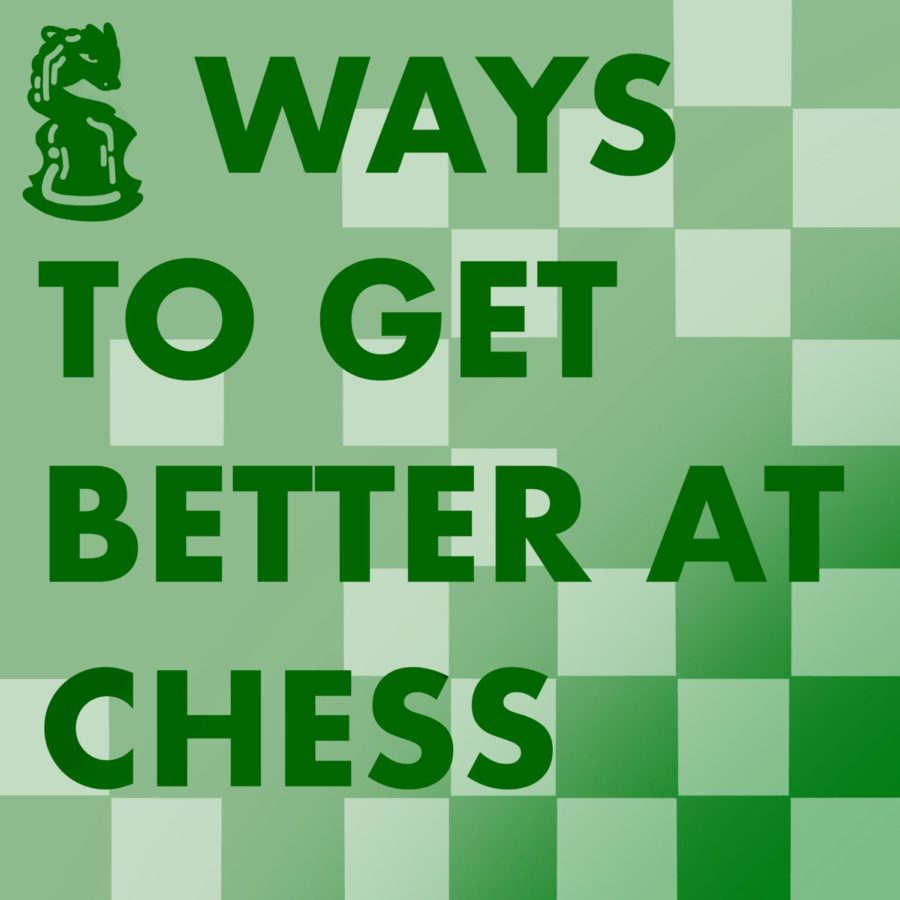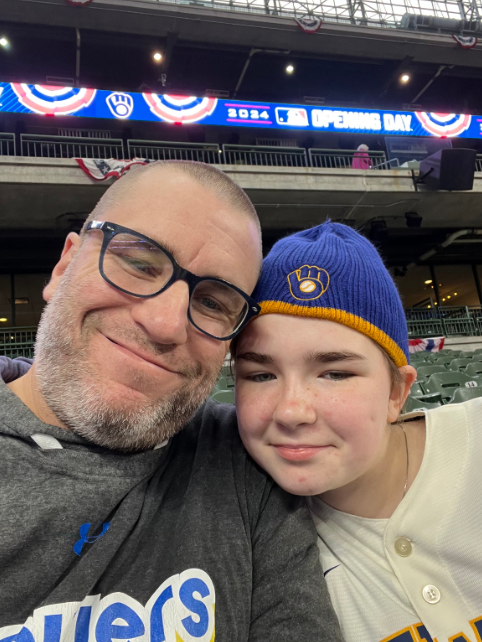5 Ways To Get Better At Chess
March 10, 2023
Bobby Fischer, regarded as one of the best chess players in history, was driven to insanity from being a genius. 7 Grandmasters and International Masters died by suicide. Abe Turner, one of the only players to ever have a winning record against Bobby Fischer, was stabbed 9 times in the back and shoved into a safe by an employee that worked for the magazine Chess Review. If you want to experience an extraordinary death, it’s your turn to master the game containing 64 squares! Whether you are just a casual player that only plays chess with friends or a competitive-level player, there are certain principles that you should practice to get better. Here are 5 essential tips that you can take to destroy your next opponent:
1. Play More Mindful Chess
Well, no duh. Getting better at anything requires practicing a skill. An NBA basketball player spends years playing basketball games to get better. A chef creates hundreds of dishes before concocting something they are actually proud of. If you want to get better at chess, you must play hundreds or even thousands of games. However, the keyword is “mindful”. If you play a thousand games and do not get better, chances are you aren’t analyzing your games and finding where you went wrong. The most famous online chess website, chess.com (which constantly crashes due to overpopulation), provides players with a deep analysis of each move during a game. However, they limit every player to only one analysis per day unless they pay, which probably won’t allow you to get faster results since you’re broke. There are websites such as lichess.org that give a FREE analysis of games that provide players with the mistakes they made. On most evaluations, the engine provides an “average centipawn loss” that basically describes how bad your moves are. If you have a really low centipawn loss, it means you are playing relatively good moves. An average player can expect a 50-100 centipawn loss while grandmasters will consistently get between 0-10 (perfect chess). This is the most valuable method a player can utilize to get better at chess. If you continuously analyze your games and find mistakes, you can adapt and prevent these mistakes in future games.
2. Study Chess Openings
At the highest level of chess, a single inaccuracy in the first 15-20 moves will cost you the game. Having a good opening will help you gain a more playable position. One valuable step could be to read this article written by yours truly: 5 Chess Openings You Should Know. Understanding your openings will not only make the game more enjoyable but also make you a much better chess player. Openings often have many mechanics and attacking ideas that are consistent throughout all openings. For example, in both the Queen’s and King’s Gambit, you are sacrificing a pawn to gain more space in the center. Whether you play the Scandinavian or the King’s Indian, you will gain a better overall understanding of how chess works and how to win if you study openings.
3. Learn Tactics
There are an estimated 10^120 unique chess positions, which is even bigger than the total number of atoms in the universe (10^80). With an endless number of games, it seems trivial that patterns would actually emerge. However, since the main objective is to checkmate your opponent, there are tactics that show up on a game-to-game basis. A tactic is a strategy in which a player plays a few moves that can either checkmate the opponent, win a piece, or result in a completely winning position. Tactics include forks, pins, discovered attacks, and more. For example, a fork is a tactic where you attack two pieces at once. Try the following tactic, white to move:
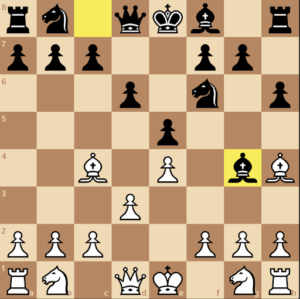
(Source: Chess.com)
The correct move in the position is Bxf6. Although the white queen is being attacked by the light-squared bishop, if we take the knight on f6, the bishop would also be attacking the queen.
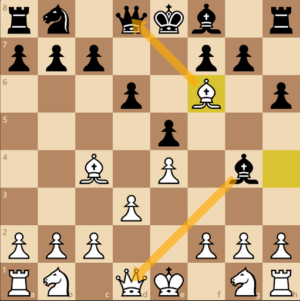
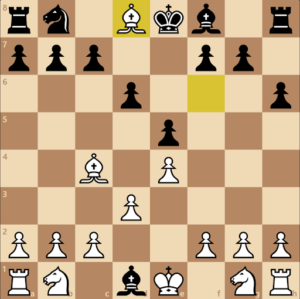
If we count the material, white has 2 knights and a bishop (once black captures the dark-squared bishop) and black will have a knight and a bishop. If that puzzle was simple for you, try this one (also with white to move).
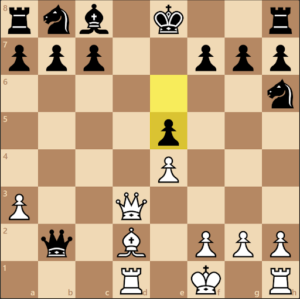
This one is a bit more difficult. The correct answer is Qd8+.
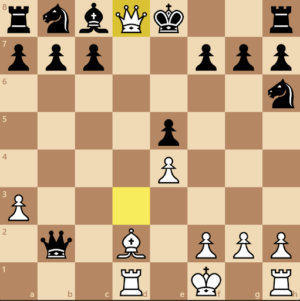
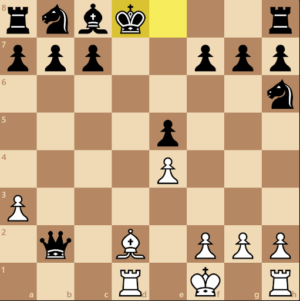


(Source: Chess.com)
Finally, Rd8#.
If you struggled with either of those tactics, no worries. There are millions of tactics on the internet that are suited for all types of skill levels. One thing is certain: the more tactics you do, the better you will be at finding them in an actual game.
4. Use other resources
The internet is a wonderful place. That’s why you’re able to read this article! Other than listening to music, playing video games, and a million other things, the internet can also be a place to help you learn. If you search “How to Get Better at Chess” on YouTube, you will find numerous videos that will help you improve. If you want to learn a specific opening or get better at the endgame, you can find videos from some of the best chess players in the world. One of the fastest-growing chess content creators, GothamChess, has videos that go over top-level games, explaining openings friendly for beginners, and other videos that make chess more enjoyable. You can also watch some of the best chess players play such as Hikaru Nakamura and Magnus Carlsen. There is an abundant amount of videos, resources, and websites that you can access to boost your chess IQ.
5. Have Fun
This is the cringe part that every article includes. However, it is the most important part to become successful. If you’re not enjoying chess, take some time off. The chess rules are never going to change and you can always come back at some other point. The more fun you have playing the game, the better you will get. When you are genuinely interested and passionate about something, you will often find out that you improve faster. Learning is a journey and if there isn’t any enjoyment, it will lead to boredom and burnout.
“Success is a journey, not a destination”
Arthur Ashe (American Tennis Player)
Chess is one of the oldest games, and yet, it is more popular than ever. As millions of people are suddenly introduced to chess through social media and the Magnus Carlsen controversy (Hans v. Magnus BEADS?), it is never too late to start learning. From analyzing your games at a deeper level to practicing tactics, it is laughable at how easy it is for you to become a better chess player. The next time you play with your friends or family members, you’ll be the one who exclaims “checkmate.” And maybe one day you can die peacefully while playing one of the best games ever invented: chess.
If you’re interested in chess, check out 5 Chess Openings You Should Know.



